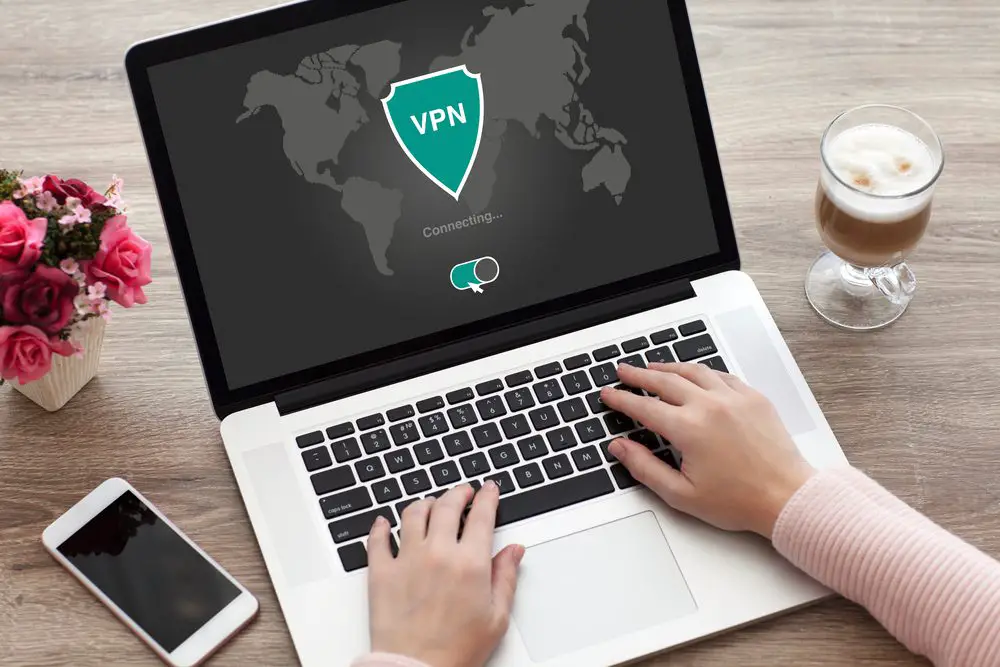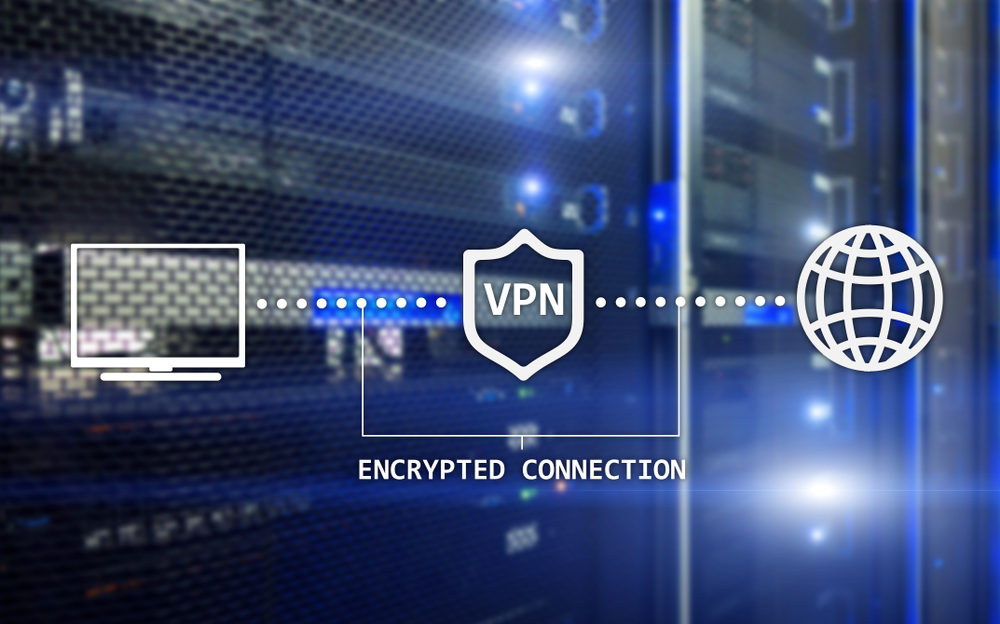Given that we are almost always connected to the Internet on a daily basis, cybersecurity is a growing concern among all of us. From our IoT devices to our smartphones, we depend on the internet to power our thirst for better communication and information on demand.

Today, we explore how a VPN is safe to use and what other internet security considerations you have to make when picking one for daily use.
Why Use a VPN?
A Virtual Private Network (VPN) allows you to mask your internet activity by encrypting your traffic – routing it through different servers. There are different types of VPNs available in the market, all of which work a little differently from each other.
People who want to be anonymous, to a certain degree, can benefit from a VPN. A VPN masks your data from potential hackers, your internet service provider, and allows you individual freedoms online.
Some have extra security benefits, and some can be considered a little safer than others. From the type of services they offer to their payment terms, there are a lot of factors when choosing a VPN service provider.
Paid vs. Free VPNs
There are two main types of VPN: paid and free.
Free VPNs are usually limited by the number of features that they offer to their customers. Since they’re free, a lot of people have to share the limited number of servers that they offer, making these services slower than paid, premium VPNs.
Another disadvantage that they have is the number of countries you can utilize their servers from, meaning that you can only mask your location using a few countries.
Both types can mask your activity, but a premium VPN will be able to give you better performance in terms of speed and reliability. In a premium VPN service, it’s also expected that they have excellent customer services.
If you decide to pull the trigger on a premium account, here are a couple of things that you should check out in order to make sure that you maximize your safety online.
Check The Company’s Terms
Each VPN company has its terms and conditions that differ from each other. It’s, therefore, essential to read the fine print of a VPN company you’re planning to choose. There are a lot of things that they don’t consumers from the get-go, and this is why this remains a critical step
In the fine print, always check for the privacy options that they offer. This will allow you to check which VPN is more private about the data that they collect about you.
Also, check out how the company stacks up with the rest of the competition. More often than not, there are a lot of ways that they differ, and although some companies might appear safe, they still might divulge information about your activities.
Change Your Country of Origin
There are some countries – such as China or Turkey – that blacklist access to certain websites. A VPN allows you to access these websites regardless of the blocking attempt.
The reason this is important is for you to mask your country of origin. This is especially important if you don’t want the government to find out about what you’re accessing. However, this isn’t a full-proof plan, you still need to employ additional safety measures.
Check or Ask For a Trial Account
VPNs may appear inexpensive at first glance, but if you add their costs, you’ll find that you’re spending a lot of money trying to secure your internet connection. Getting a significant discount will require that you subscribe to an annual payment plan, which will cost you even more.
In this case, it’s highly advisable that you try out the platform before you pay for an annual subscription
There are a couple of things that you’re looking out for, one of which should be your own safety. In this case, we won’t focus on speed because there are a lot of things that you can do to increase the
You need to check for any leaks that your VPN might be giving out, which you can do by using a variety of tools online.
It’s essential that you check if your IP address has changed and how much information your VPN is showing about you. You can run a penetration test on your VPN by using the tools discussed here.
A simple penetration test will allow you to test your VPN by simulating what an attacker would do to penetrate your network and showing you the results. By being able to defend against these attacks, your VPN is able to properly secure your network.
A trial account with full access to the VPN features that you need should be enough for you to try all of these things. At this point, you should also check if the people are reporting the same thing.
DNS Leakage
One issue that you have to look into is if the service offers DNS (Domain Name System) leak protection. There are some VPNs that could leak DNS queries outside the encrypted connection. This could cause your data to be spilled out and compromise your privacy.
Always make sure that your VPN offers DNS leak protection. Even during your trial period, make sure that you test if it’ll leak any DNS information.
Payment Terms and Log-Ins
Another consideration with consumer VPN is the payment method. Some people don’t want to be identified at all, so they look for multiple ways to pay for the service anonymously. Others look for convenience, but almost all the services can be paid with a credit card.
Some VPN companies take their payment methods to the next level by offering options to pay using cryptocurrency, which further anonymizes their use of a VPN service.
As per logins, a few companies don’t even require you to input your email address for your account information and opt for code instead. This code can be memorized to guarantee that none of your details are being used.
Logging
Logging is one of the most important factors to consider in your search for the top VPN services because it deals with your personal information being recorded. There are different types of information logging, some providers may log specific details of your traffic, and there are others who don’t do any logging at all.
It’s advised that you avoid VPN providers who could be logging in your network activity, such as the sites that you visit and DNS traffic. This is dangerous because that’s personal information that could compromise what you’re doing online.
The best VPN providers are those who don’t record any of your information at all. However, there are also some who log how long you’ve been using their servers and how much bandwidth you’re consuming. It doesn’t contain personal information, so these types of logging processes are tolerable to a certain degree.
VPN Protocols
There are different VPN protocols for you to try, and you should pick a VPN that supports secure protocols as part of its package. Premium VPN packages nowadays allow you a variety of options when it comes to securing the connections that you have.
These protocols allow for better protections and encryptions for the traffic that you’re sending out through your network.
Kill Switches
One of the most important considerations that you have for a consumer-grade VPN is if it has a kill switch. A kill switch works by stopping all internet activity if, by chance, the VPN’s connection drops or experiences a malfunction. This will prevent any unmasked traffic from being communicated through your network.
This reduces the chances of sensitive information from being leaked to would-be snoops in case of malfunction.
Dedicated IP Addresses
If the VPN you’ll be picking up provides you with dedicated IP addresses run far away from it. Premium VPNs don’t use this feature anymore because snoops can pin traffic to a specific IP address.
A shared IP address – its counterpart – allows you to share an IP address with multiple users making anonymity easier for you.
Security for All Your Devices
A lot of VPN providers now allow you to have access to your account on some devices, and this provides customers with security across every platform that they’re using. This will enable you to make the most out of your VPN connection that you’re paying for.
You can get a VPN connection that’ll protect and mask your data traffic against unscrupulous individuals. You can use them on your phone, tablet, and several computer devices that you have. The usual number of devices that you can log into is five.
Conclusion
Even the best VPN in the market won’t be able to provide you with complete anonymity and the ability to be invincible against every type of cyber threat available.
However, you still need to employ due diligence and make sure that you cover multiple threat vectors depending on the degree of protection that you need. Identify what you’re protecting yourself against and add additional layers of protection to maximize your safety online.
![]()
The post Consumer VPN Safety Tips To Consider appeared first on Penetration Testing.







